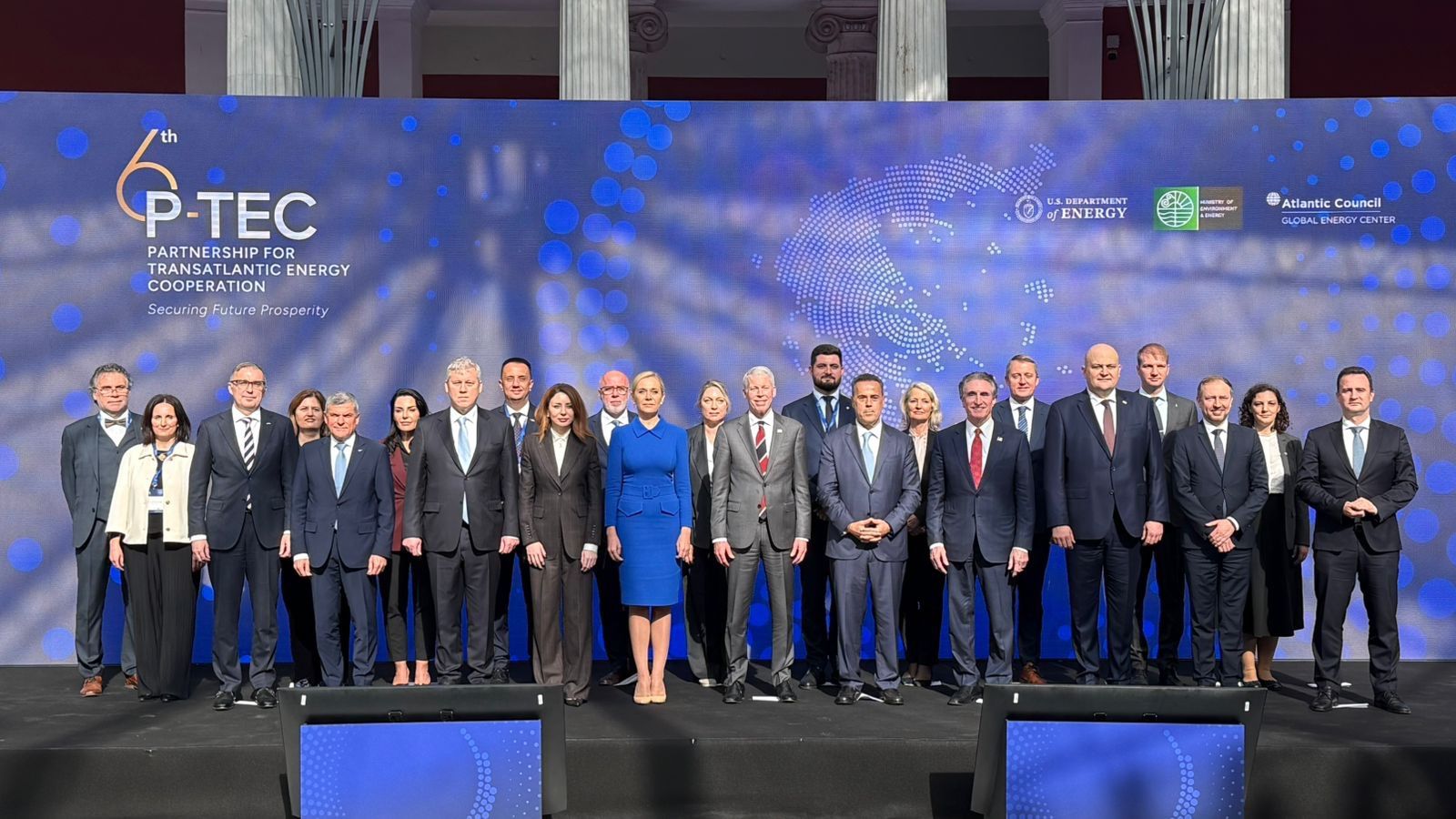
Moldova to build new interconnection lines with Romania and Ukraine
Moldova will build new interconnection lines with Romania and Ukraine. These are Vulcănești–Smârdan, Comrat–Smârdan and Vulcănești–Artsyz projects. They will strengthen regional connectivity and enable the integration of future renewable energy capacities.
Minister of Energy Dorin Junghietu presented the goals at the sixth meeting of the Partnership for Transatlantic Energy Cooperation (P-TEC), held in Athens, Greece.
In his speech, Junghietu emphasized that Moldova is no longer dependent on Russian gas, acquiring its entire gas supply from international markets, and highlighted that the country is transforming from a vulnerable consumer into an active regional partner and contributor to Europe's energy stability.
'Just three years ago, Moldova was almost entirely dependent on a single gas supplier. Today, that chapter has closed. We have demonstrated that determination, cooperation, and a European vision can transform vulnerability into resilience and independence,' said Junghietu.
The minister thanked Romania and the European Union for their constant support in ensuring Moldova's energy security, including the European grant of 15.4 million euros for Vulcănești–Chișinău interconnection. Thanks were also expressed to the United States for the 130 million dollar grant for the construction of Strășeni–Gutinaș (400 kV) line—a strategic investment that strengthens Moldova's integration into the European energy market and supports regional stability.
The official also highlighted the increasing cooperation with Ukraine, mentioning the inclusion of Bălți–Dnestrovsk Power Plant (330 kV) line in the list of Projects of Energy Community Interest (PECI), a step that will increase transfer capacity and strengthen supply security in both states.
Moreover, Moldova was highlighted as a key partner in the Vertical Gas Corridor, which connects Greece, Bulgaria, Romania, Moldova and Ukraine, facilitating bidirectional flows of natural gas and strengthening the energy resilience of the region.
'Energy is today more than an economic sector—it is a guarantee of freedom, a pillar of security, and an instrument of solidarity. Every interconnection we build makes us stronger, as countries and as a region,' emphasized Junghietu.
Junghietu participated in the sixth meeting of the Partnership for Transatlantic Energy Cooperation (P-TEC) at the invitation of the Transatlantic Council, alongside high-ranking U.S. officials, Secretary of Energy Chris Wright and Secretary of Internal Affairs Doug Burgum. The event brought together energy ministers, representatives of European and American institutions, international organizations and major companies from the energy sector to discuss the challenges and opportunities of transatlantic cooperation in energy.
VIDEO // Deputy PM says Moldova shows small state can be great example of resilience, innovation
Moldovan energy minister says higher electricity prices in last October due to regional developments
PHOTO // Moldovan wines conquer Japan
Government considers solutions for continuous supply of petroleum products to Chișinău International Airport
New head of Customs Service appointed today
European Commission praises Moldova for progress in energy sector
Energocom company of Moldova procures electricity at average price of 132 Euros/MWh in last October
World Bank forecasts acceleration of Moldova's economic growth in medium term
VIDEO // Chisinau International Airport enhances safety level with acquisition of unique intervention vehicle
Moldova launches imPACT mission for evaluation of national cancer control system
Moldovan PM, head of office of European Bank for Reconstruction and Development in Moldova discuss projects funded by bank
Eugen Doga International Airport from Chisinau European leader in growth of passenger traffic among medium-sized airports
Moldovan Prime Minister to pay official visit to Bucharest
Judges' evaluation commission of Moldova has new leadership
VIDEO // Education Minister on World Science Day: We want strong research sector to underpin economic growth
Moldova benefits from World Bank support in developing first national financial inclusion strategy
Christmas Fair in Moldovan capital to open on 5 December
Over 390 thousand people applied for energy compensation in first week of registration launch
Moldova to build new interconnection lines with Romania and Ukraine
VIDEO // Moldova to take over chairmanship of Committee of Ministers of Council of Europe
Venice Commission rapporteurs visit Moldova
Moldova among Europe’s fastest-growing tourist destinations
VIDEO // Moldovan education minister says young people represent engine of change, future of European Moldova
Moldovan-Ukrainian border crossing points resume work; increased flow of travelers, vehicles noticed
Moldovan Foreign Affairs Ministry makes clarifications on denunciation of Commonwealth of Independent States' visa-free travel Agreement

